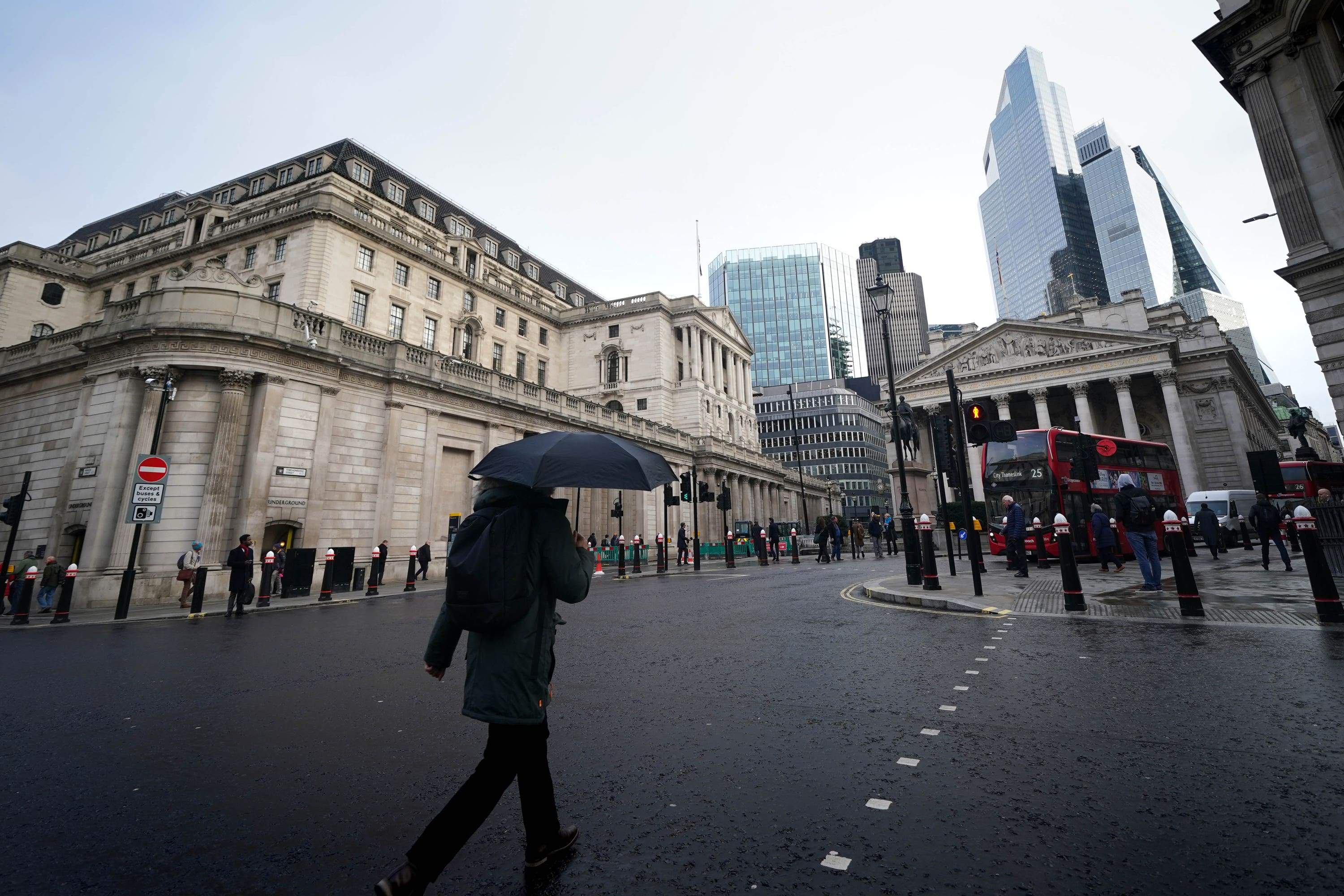Slowdown in wage growth ‘clears path for more interest rate cuts’ this year
Persistent inflation remains a worry for the Bank of England, but new wages data could ease concerns

Your support helps us to tell the story
From reproductive rights to climate change to Big Tech, The Independent is on the ground when the story is developing. Whether it's investigating the financials of Elon Musk's pro-Trump PAC or producing our latest documentary, 'The A Word', which shines a light on the American women fighting for reproductive rights, we know how important it is to parse out the facts from the messaging.
At such a critical moment in US history, we need reporters on the ground. Your donation allows us to keep sending journalists to speak to both sides of the story.
The Independent is trusted by Americans across the entire political spectrum. And unlike many other quality news outlets, we choose not to lock Americans out of our reporting and analysis with paywalls. We believe quality journalism should be available to everyone, paid for by those who can afford it.
Your support makes all the difference.Wage growth has slowed to its lowest level for more than two years, which economists say could clear the path for more interest-rate cuts by the Bank of England later this year despite worries over persistent inflation.
The Office for National Statistics (ONS) revealed on Tuesday that wage growth was 5.4 per cent year on year over the three months to June, down from 5.7 per cent in the previous three months.
It represented the smallest increase since the period to July 2022. The data found that UK workers saw an average increase of 2.4 per cent once inflation was taken into account.
“The further easing in wage growth will be welcomed by the Bank of England as a sign that labour-market conditions are continuing to cool,” said Ruth Gregory, deputy chief UK economist at consultancy Capital Economics.
“This lends some support to our forecast that the Bank of England will press ahead with two more 25bps [basis points] interest-rate cuts later this year.”
The statistics agency also said that the rate of unemployment was 4.2 per cent over the three months to June, dropping from 4.4 per cent over the previous three months.

Ms Gregory added: “Despite the decline in the unemployment rate, we doubt today’s release will move the needle too much for the Bank of England. We still think the Bank will pause in September before pressing ahead with two more 25bps rate cuts in November and December.”
However, the National Institute of Economic and Social Research (NIESR) said that while wage growth is slowing, it remains strong, and it could cause the Bank to rethink imminent interest rate cuts.
Monica George Michail, NIESR associate economist, said: “Adjusted for inflation, wages rose by 1.6 per cent, meaning workers will see a continued improvement in their standard of living.
“However, the persistence of strong wage growth also raises concerns about stickier inflation, which may prompt the Bank of England to remain cautious about further interest-rate cuts. We expect wage pressures to continue falling gradually in the coming months as the labour market cools, with unemployment rising relative to vacancies.”
The Bank raised interest rates to a 16-year high of 5.25 per cent last year to battle soaring inflation, and only cut by a quarter-point drop at the start of this month to 5 per cent.
Governor Andrew Bailey has struck a cautious tone on further cuts, and many economists believe rates will be kept unchanged when the committee next meets in September.
One of the factors likely to influence this decision is Wednesday’s inflation data, which is expected to show that inflation rose above the Bank’s 2 per cent target in July, driven in part by seasonal increases in the price of holiday-related purchases such as airfares and hotels.
Rob Wood, Pantheon’s chief UK economist, said: “The price of a one-night hotel stay has been very strong this year, partly reflecting a new seasonal pattern since Covid ... as well as hotels likely charging a form of surge (demand-based) pricing.
“The ONS surveys only about 100 hotels, which means that outliers, such as a Welsh hotel price in June boosted by demand from a Pink concert, can distort the figures. But some hotel price inflation is genuine, as a range of CPI service components related to travel or that are labour-intensive have been strong this year.”
The ONS data also showed another decline in vacancy rates. The number of vacancies in the UK decreased by 26,000 to 884,000 for the three months to June.
A particularly concerning figure for chancellor Rachel Reeves was that economic activity remains high at 9.41 million, up 350,000 from 2023.
She said that the figures “show there is more to do in supporting people into employment because if you can work, you should work”.
“This will be part of my Budget later in the year, where I will be making difficult decisions on spending, welfare and tax to fix the foundations of our economy so we can rebuild Britain and make every part of our country better off,” she added.
Join our commenting forum
Join thought-provoking conversations, follow other Independent readers and see their replies
Comments